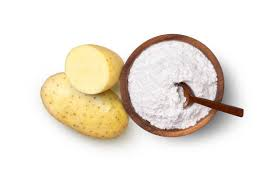Author: Simran Chalke / Date: 25 October 2024
In today’s fast-paced world, washing your hair daily isn’t always an option, and that’s where Flawless Fix Dry Shampoo comes to the rescue. However, not all dry shampoos are created equal. Flawless Fix Dry Shampoo is designed not only to refresh your hair but also to maintain its health and texture between washes. In this blog, we’ll dive into the unique blend of ingredients that make Flawless Fix a game-changer, breaking down how each component works to absorb excess oil, add volume, and leave your hair smelling fresh—all without the harsh chemicals that can strip your strands of moisture. Let’s explore what’s inside and how these carefully chosen ingredients contribute to a flawless finish.

Oryza Starch
Rice starch excels at absorbing excess oil from the scalp and hair. It helps to quickly eliminate the greasy, weighed-down appearance of hair, leaving it fresh and clean.

Cassava Starch
Provides Nutrition and Strengthens hair.

Tapioca starch
Provides Nourishment to hair.

Corn starch
Holds up Moisture.

Wheat Starch
Repairs damage of hair from bleach, heat, chemical treatments

Potato starch
Reduces Dryness, Frizziness and adds shine to the hair.

Orbignya Speciosa Kernel oil
Deep moisturization to dry and brittle hair.

Astrocaryum Murumuru Seed Butter
It has repairing properties, making it an ideal choice for damaged, chemical & colour-treated hair.

Hydrolyzed Wheat protein
It helps restore hair’s natural barrier, reducing breakage and split ends.

Avena Sativa (Oat) Kernel Protein
Oat protein retains moisture and prevents the hair from becoming brittle.

Almond protein
Almond protein helps control frizz

Sunflower seed oil Ester
This oil is high in vitamin E & acts as a powerful antioxidant, helps protect the hair from environmental damage, such as pollution and UV rays, preventing dryness and brittleness.
ECOCERT Fragrance in Dry Shampoo: A Natural Choice for Fresh Hair
When choosing a dry shampoo, it’s essential to consider not only its performance but also its impact on your health and the environment.
One key ingredient to look for is ECOCERT-certified fragrances. These fragrances are derived from natural, sustainable sources and meet stringent environmental and safety standards. Unlike synthetic fragrances that may contain harmful chemicals like phthalates, ECOCERT fragrances are free from toxic substances, making them a safer choice for both your scalp and the environment. They are non-allergenic and less likely to irritate, making them ideal for sensitive skin and scalps. Additionally, ECOCERT certification ensures that the production of these fragrances adheres to ethical and sustainable practices, including reduced environmental impact and support for biodiversity. By choosing a dry shampoo with ECOCERT-certified fragrance, you’re opting for a product that not only refreshes your hair but also aligns with clean beauty values, providing a safer, eco-conscious option for your daily routine.
Natural vs. Synthetic Ingredients in Dry Shampoo: Which Is Best for Your Hair and the Environment?
As the demand for effective and environmentally conscious hair care products grows, the debate between natural and synthetic ingredients in dry shampoo has become increasingly relevant. Natural ingredients like corn starch, rice starch, and botanical extracts offer a gentler and eco-friendly alternative, while synthetic ingredients such as silica and talc provide oil absorption and extended freshness. Understanding the differences between these two types of ingredients is essential for making informed choices that balance hair health, product performance, and sustainability.
Both natural and synthetic ingredients in dry shampoos have their own benefits and drawbacks. Natural ingredients, such as cornstarch, rice starch, and essential oils, are favored for their gentle, eco-friendly properties. They are plant-based, biodegradable, and less likely to irritate the scalp, making them a great option for individuals with sensitive skin. Additionally, they align with the growing demand for sustainable, clean beauty products. However, natural ingredients may not be as effective in oil absorption or deliver the same long-lasting effects as their synthetic counterparts.
Conversely, synthetic ingredients like silica, talc, and chemical fragrances offer consistent performance. These ingredients are formulated to provide effective oil absorption, smooth application, and longer-lasting freshness. They also tend to leave less visible residue, making them ideal for darker hair colors. However, synthetic ingredients can have potential drawbacks. Some may contain harmful chemicals like parabens, sulfates, or phthalates, which can irritate the scalp or pose long-term health concerns.
Additionally, synthetic formulas may negatively impact the environment due to non-biodegradable components. Balancing these factors is crucial when selecting a dry shampoo that meets both performance needs and personal health and sustainability goals.
The demand for natural and organic ingredients in beauty products, including dry shampoos, has been rapidly increasing in recent years. Consumers are becoming increasingly aware of the potential health risks associated with synthetic chemicals, such as parabens, sulfates, phthalates, and artificial fragrances, which have been linked to skin irritation, hormonal disruption, and even long-term health issues. As a result, people are seeking cleaner, safer alternatives that are derived from nature and free from toxic additives.
Furthermore, there’s a growing focus on transparency and clean beauty standards, with certifications like ECOCERT, USDA Organic, and COSMOS providing consumers with assurance that the ingredients used are not only natural but also meet rigorous standards for sustainability and ethical sourcing. Brands that emphasize organic ingredients are often viewed as more responsible and trustworthy, driving brand loyalty in a competitive market.
This increasing demand for natural and organic products reflects a consumer desire for holistic beauty solutions that not only deliver results but also promote long-term health and align with values of sustainability and wellness.

